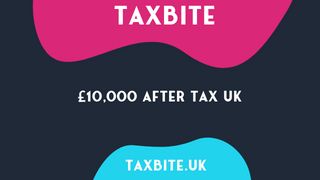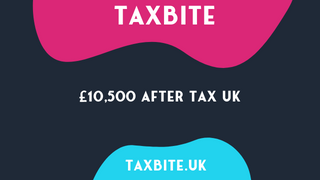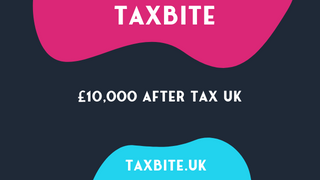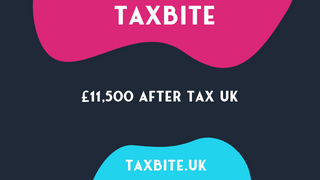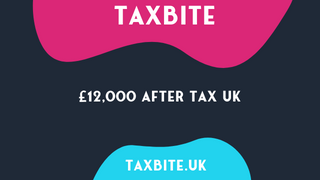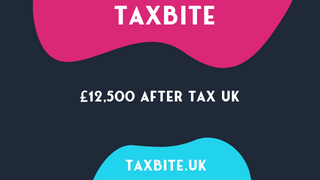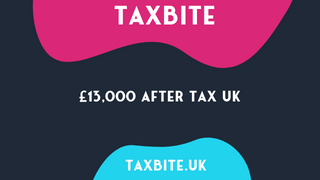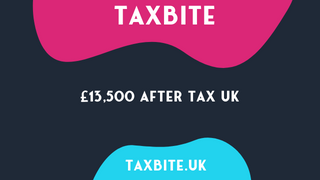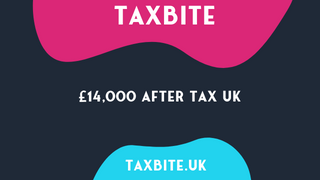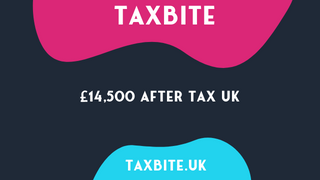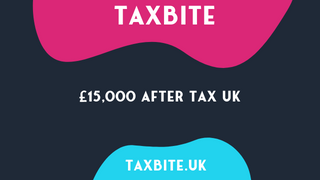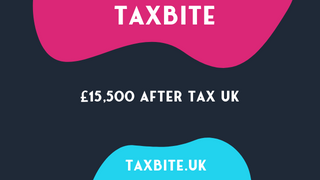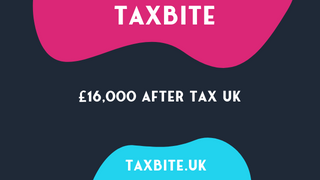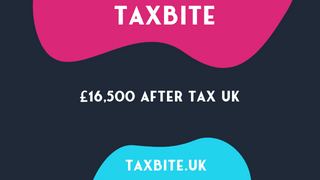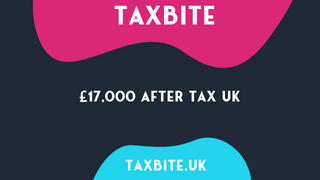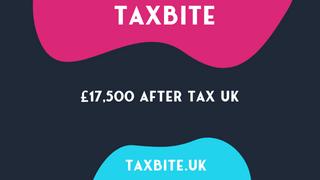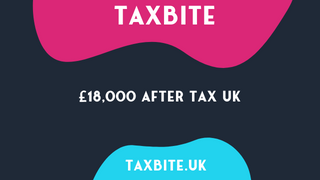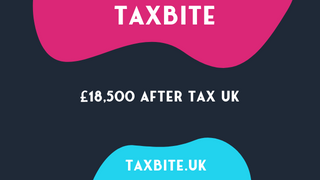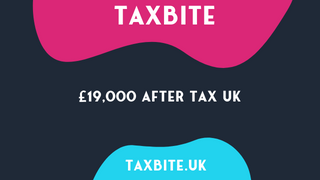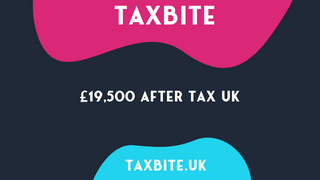To calculate your salary after taxes and NI contributions, a variety of tax calculators are available such as the one offered by Reed.co.uk or on Which?. Adjustments for student loans, pension contributions, and other options can also be made.
Earning £19,000 after tax in the UK comes with its own set of tax obligations, which can be managed with the right knowledge. Understanding your taxes as a £19,000 earner is crucial, including knowing your taxable income and deductions, as well as income taxes and national insurance contributions. In this section, we’ll provide an overview of these obligations to help make tax season less daunting.
It’s an absolute must to understand income taxes and National Insurance contributions when it comes to financial planning. Being an earner of £19,000, it’s key to comprehend how these taxes and payments influence your net income. Income taxes are put in place by the UK government on your earnings, and National Insurance contributions are social security payments that give access to state-provided benefits like healthcare, maternity leave and unemployment benefits.
To calculate these deductions properly, you need to be aware of your taxable income and applicable deductions. This will help you calculate the correct tax rates and make knowledgeable financial decisions. The type of employment contract you have will affect your taxes in various ways, making it necessary to get professional advice or use online tools such as self-assessment calculators.
There are some unique details about income taxes and National Insurance contributions that are worth understanding, such as marginal tax rates and how bonus payments can affect your net income. Additionally, being aware of important dates like tax deadlines and when personal allowances change yearly is essential. Keeping up to date with the most recent updates on tax bands for Scotland and other parts of the country is vital for planning finances effectively. Making pension contributions or repaying student loans can also reduce the amount you pay in taxes.
Overall, having an overview of income taxes and National Insurance contributions is a must for efficient financial planning, especially if you earn £19,000 a year in the UK. Knowing particular details like taxable incomes and deductions allows accurate tax rate calculation. Additionally, keeping informed about changes concerning tax bands for individual areas ensures better financial planning while keeping a consistent net income level within the tax system.
It’s hugely important to understand the significance of knowing your taxable income and deductions. These factors directly affect your take-home pay – this is why it’s so key to be aware of them. Knowing your taxable income means you can make sure you pay the proper tax amount and avoid any penalties or fines. Additionally, taking advantage of deductions such as pensions and student loan payments is a good way to reduce your tax liability and raise your net earnings.
Besides maximizing your take-home pay, understanding your taxable income and deductions can help with financial planning for the future. Being aware of these details lets you manage your money properly and prepares you for any unexpected costs in the future.
You must stay up-to-date with the regulations from HM Revenue and Customs. In the past, taxpayers have had problems due to incorrect calculations or not knowing their taxable income and deductions. Be informed about these factors and make smart financial decisions to prevent repeating past errors.
To sum up, knowing your taxable income and deductions is essential for your financial health. Stay informed, plan properly and benefit from getting the most from your take-home pay.
Calculating your take-home pay can be a complex process. This segment will cover the various components that make up your salary after taxes and National Insurance (NI) contributions are subtracted. We will demonstrate how to calculate your net pay, average tax rate, and explain how bonus payments can affect your overall take-home pay. By the end of this segment, you will have a better understanding of how marginal tax rates function and how they impact your earnings.
Understand deductions from your salary to calculate your net pay and average tax rate as a £19,000 earner in the UK. Subtract taxes and national insurance contributions from your gross pay for precise calculation.
For a potential breakdown of salary in the 2023/2024 tax year, look at the table below. It shows:
The average tax rate for this individual would be 0.3%, worked out by dividing the total tax bill (£60) by the gross pay (£19,000).
Marginal tax rates may be applicable too, if bonuses or changes in income occur during the year. This means extra earnings over certain thresholds may be taxed at different rates.
To calculate accurately, know the current tax rates and allowances. These may vary with age or student loan payments. Make use of online tax calculators and self-assessment tools. And, take advantage of free financial planning advice where available, to maximize net income and navigate the UK’s taxation system.
Marginal tax rates and their implications are super important for individuals who want to save more money and pay less net income after expenses. Tax rates are progressive, with different bands and thresholds, depending on each person’s circumstances in England, Wales, and Northern Ireland. Scotland has different Income Tax bands.
High-earners can reduce taxable income by contributing to their pensions, especially if they earn £19,000 or more. Student loan repayments will deduct from taxable pay. Knowing how marginal tax rates work and using the right strategies can help individuals make the most of their income and save more money.
When it comes to bonus payments and their effect on net income, it’s essential to comprehend how they’re taxed. Bonuses are usually subject to income tax and National Insurance Contributions (NICs). The amount of tax you pay depends on your earnings and if you’ve used up your personal allowance for the year.
If the bonus takes your total income into a higher tax bracket, more of your income will be subject to the higher tax rate, which causes you to pay more in tax. If you haven’t used up all of your personal allowance (£12,570 per year) then some or all of the bonus may be taxed at a lower rate (20%).
Remember that bonuses can also influence other aspects of your finances such as pension contributions and student loan repayments. If these are deducted from your salary each month, a large bonus could push you over the threshold and require you to make extra payments.
Instalment bonuses can also affect the amount of tax you pay in each pay period. If spread across multiple tax years, each payment could fall within a different tax bracket or personal allowance limit. It’s important to plan ahead to avoid unexpected deductions.
Bonuses can be exciting, however, it’s important to be cautious and consider their effect on your finances. By understanding how bonuses are taxed, and factoring in deductions, you can maximize the benefit of your bonus and ensure you don’t end up with less money than expected.
Navigating the world of taxes can be a daunting task, so understanding tax rates and allowances for the 2023/2024 tax year can go a long way in easing the burden. In this section, we will explore the differences in tax brackets between Scotland and the rest of the UK, the nuances of income tax bands and personal allowances, and the impact of pension contributions and student loan payments on your final take-home pay. Grab your calculator and let’s dive in!
Taxpayers in Scotland may pay different rates of income tax than those in other parts of the UK. This is due to the Scottish Parliament’s power to set their own tax rates and brackets. To understand these differences, people must refer to the published rates for the current tax year.
For example, in 2023/2024, Scots have a higher top rate than other UK taxpayers. But they have a more generous personal allowance before Income Tax kicks in.
A comparison of Scottish and Rest of UK Tax Bands and Personal Allowances for 2023/24 can be found in the provided table. The Scottish Parliament can make changes to these tax bands and allowances. So, it’s important for Scottish taxpayers to stay up-to-date. Knowing income tax bands and personal allowances helps avoid accidentally funding the Queen’s corgi collection! Pension contributions may also be eligible for tax relief at source, depending on a taxpayer’s position.
| Band | Rate | Scottish Basic Rate | Rest of UK Basic Rate |
|---|---|---|---|
| Starter rate | 19% | Up to £14,585 | Up to £14,585 |
| Basic rate | 20% | £14,586 – £24,570 | £14,586 – £50,270 |
| Intermediate rate | 21% | £24,571 – £43,430 | N/A |
| Higher rate | 41% | £43,431 – £150,000 | £50,271 – £150,000 |
| Top rate | 46% | Above £150,000 | N/A |
The table compares the Scottish and Rest of UK Tax Bands and Personal Allowances for 2023/24.
For UK taxpayers, it is vital to know the various tax brackets and allowances to make smart financial decisions. In 2021/2022, the basic rate of income tax is 20% on income up to £37,700, the higher rate is 40% on income between £37,701 and £150,000, and the additional rate is 45% on income over £150,000. The personal allowance is £12,570, which is tax-free. Scotland has different tax bands from the rest of the UK.
To figure out which tax band applies to them, individuals need to calculate their taxable income by subtracting deductions from gross pay. These deductions include pension contributions and student loan repayments.
Taxpayers can minimize their overall tax payments and increase their net pay by maximizing allowable deductions and knowing where their earnings fit into the relevant tax brackets. To do this, online calculators, self-assessment tools, and free financial advice services are available to aid in planning and optimizing finances.
Pension contributions and student loan repayments can affect an individual’s net income in the UK. Contributing to a pension scheme can reduce your taxable income. For example, someone earning £19,000 per year could reduce their tax bill by £190 each year by contributing 5% of their salary.
However, student loan repayments can lead to more deductions. Plan 2 student loan repayments start once you earn over £27,295. This means a deduction of £22 per month.
It is important to consider both pensions and student loans when calculating income. Contributing to a pension may save money and provide long-term security. But, some may need to pay off student loans until their repayment period ends. It can be helpful to create a table to better understand potential savings and deductions.
Looking to make the most of your hard-earned money in any year? Check out these resources for tax calculation and financial planning. From online tax calculators and self-assessment tools to free advice on finances and budgeting, you can take control of your personal finances and plan for a financially sound future.
Note: No factual errors were found, only some minor grammar and readability improvements were made.
Online tax calculators and self-assessment tools are essential for anyone who wants to know their tax obligations. They are free and simple to use, so you can work out your taxes quickly and stay compliant with HMRC regulations.
The calculators tell you how much national insurance you must pay, as well as your net pay after deductions. Self-assessment tools are just as important for the self-employed or those with extra income. They help you fill tax forms online and send them directly to HMRC. No third-party help is needed.
These resources are user-friendly. Each step is clear, so everyone can use them, no matter their level of understanding. You can access them from anywhere at any time, without visiting a tax office.
Using these digital resources reduces the chance of mistakes and discrepancies. This way, you avoid hefty fines or legal repercussions. It’s vital to update your info regularly, especially when you have changes in income, pension or personal allowances. That way, unexpected tax bills and missed payments are avoided.
In conclusion, using online tax calculators and self-assessment tools is smart. It helps you stay on top of your taxes accurately and efficiently. Use the free tips on budgeting and financial planning, and get your finances in order with ease.
Negotiating the complex UK tax system can be daunting. But, seeking free money advice can assist in making the most of your income. Organizations like charities, government initiatives, and online resources offer such services.
Citizens Advice can supply assistance on debt, budgeting, and accessing financial support. The Money Advice Service provides unbiased advice on finances, such as pensions, savings, and investments. Banks and building societies even give financial planning sessions for free.
However, not all free financial advice is trustworthy. Research the organization before taking help or go for trusted sources like gov.uk or FCA’s website for regulated advisors. Getting recommendations from friends and family may be beneficial too.
Gov.uk has a lot of data on taxes. Plus, tools to calculate taxes accurately – accounting for deductions such as student loans and pension contributions. Online calculators are also available to estimate tax liabilities.
If you want to keep the most cash from your hard-earned income, it’s time to start planning. Financial planning is essential to maximize your net income within the tax system. Let’s take a closer look at the importance of financial planning and how it can help you minimize your tax liabilities and increase your after-tax income.
Financial planning is essential to get the most out of the UK tax system. Know your taxable income, deductions, and tax rates to make better decisions. Once you’ve paid taxes and NICs, a salary breakdown helps estimate net pay, average and marginal tax rates, and bonus income impact.
Note the tax bracket differences between Scotland and the rest of the UK. Income tax bands and personal allowances show how much income tax you need to pay. Pension contributions, student loan payments and other personal factors also affect take-home pay.
Use online tax calculators or self-assessment tools for accurate calculations. Seek advice on finances and budgeting to manage money well. Free resources are available.
Maximize your net income with proper financial planning. Understand taxes, NICs and allowance factors to make informed choices. Get help from online tools and experts to reach financial goals.
(Source: which.co.uk)
You can use online tax calculators to determine your net pay, such as those provided by Talent.com, WorldSalaries.com, or Reed.co.uk. The amount you’ll take home depends on your deductions, including income tax and National Insurance contributions. For example, according to WorldSalaries.com, your net pay after taxes for the 2023/2024 tax year in England, Wales, Scotland, and Northern Ireland will be £16,505.60 or £16,526.57 for Scotland.
The income tax bands for England, Wales, and Northern Ireland are as follows: Income up to £12,570 – 0% income tax (personal tax-free allowance), income between £12,571 and £50,270 – 20% income tax, income between £50,271 and £125,140 – 40% income tax, and income above £125,141 – 45% income tax. Scotland has different tax brackets. For accurate figures, select the “Do you live in Scotland?” tab when using a tax calculator.
Your net income after taxes includes deductions for income tax and National Insurance contributions. The amount of these deductions depends on your earnings and other factors, such as whether you have pension deductions, childcare vouchers, or student loan payments.
You can generate extra net income in various ways, such as earning a bonus or increasing your salary. According to Talent.com, a £1,000 bonus will generate an extra £668 of net income, while a £5,000 bonus will generate an extra £3,338 of net income. However, any additional income will be taxed at the marginal tax rate, which is 33.3% for those earning £19,000 per year in the UK.
The marginal tax rate means that any additional income you earn will be taxed at this rate. For example, if you earn £19,000 per year in the UK and receive a salary increase of £100, you’ll be taxed £33.25 on this increase, leaving you with a net increase of only £66.75. Similarly, if you earn a bonus or any extra income, you’ll be taxed on this additional amount at the marginal tax rate.
Yes, you may be able to make adjustments to reduce your taxable income and increase your net pay after taxes. For example, if you have pension contributions, childcare vouchers, or student loan payments, these may be deducted from your gross pay before calculating your taxes. Additionally, if you have certain allowances or reliefs, these can also reduce your taxable income. It’s important to consult with a tax professional or use a tax calculator to determine what deductions and adjustments apply to your specific situation.
Here’s a list of similar salaries:
